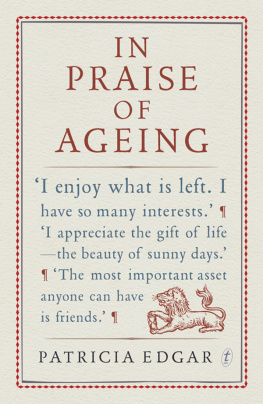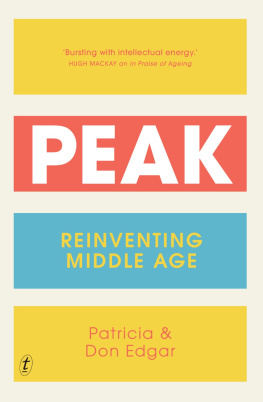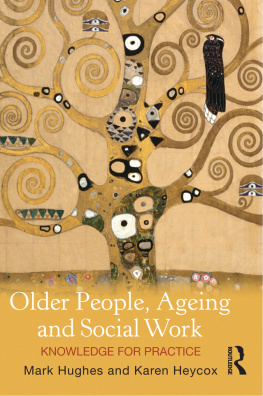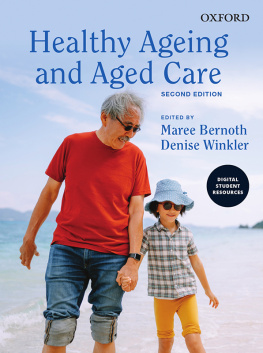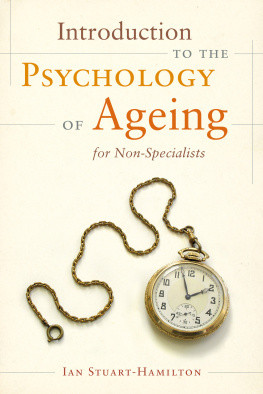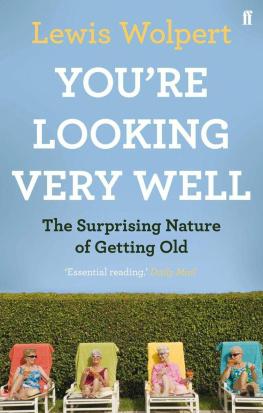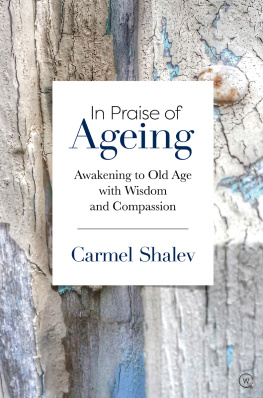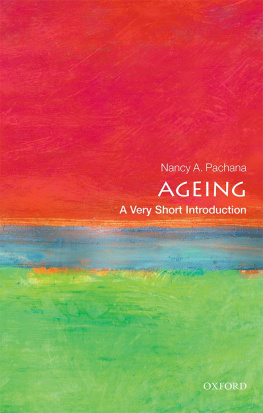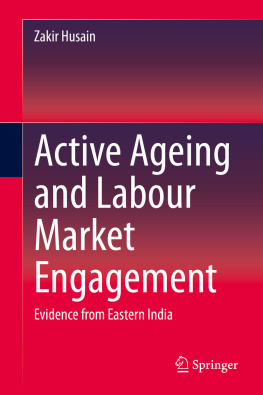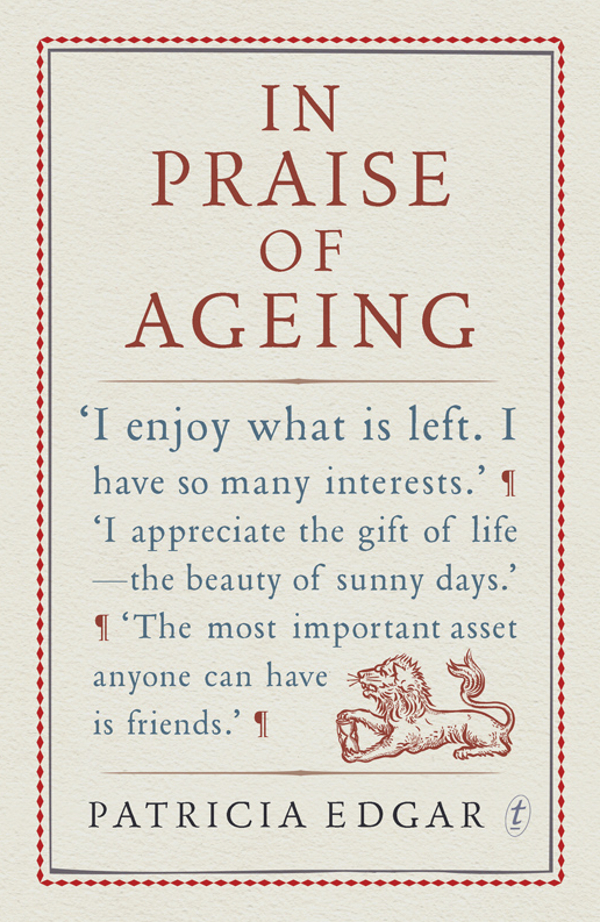
PATRICIA EDGAR is a sociologist, educator,
film and television producer, writer, researcher and
policy analyst. Through a career spanning four decades
she has been at the forefront of media for children nationally
and internationally, winning multiple awards
for her achievements and programs.

IN PRAISE OF AGEING
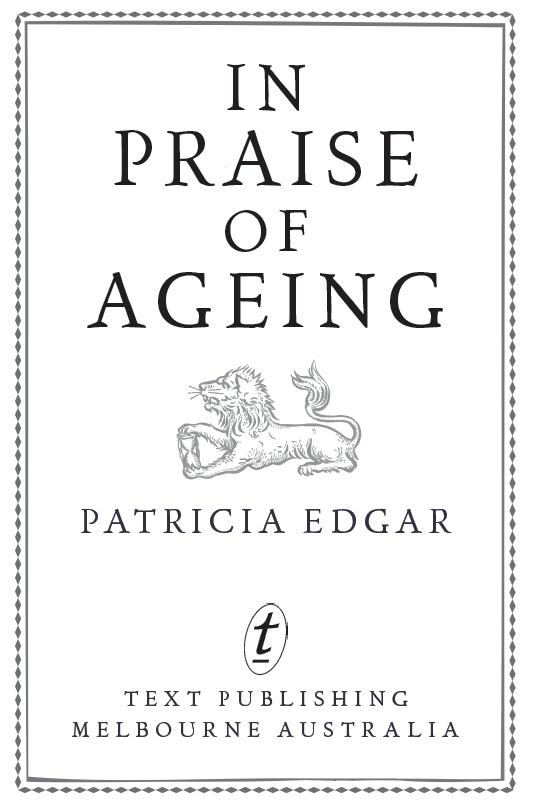
textpublishing.com.au
The Text Publishing Company
Swann House
22 William Street
Melbourne Victoria 3000
Australia
Copyright Patricia Edgar 2013
The moral right of the author has been asserted.
All rights reserved. Without limiting the rights under copyright above, no part of this publication shall be reproduced, stored in or introduced into a retrieval system, or transmitted in any form or by any means (electronic, mechanical, photocopying, recording or otherwise), without the prior permission of both the copyright owner and the publisher of this book.
First published in 2013 by The Text Publishing Company
Book design by WH Chong
Typeset by J&M Typesetting
National Library of Australia Cataloguing-in-Publication entry
ISBN: 9781922147554 (pbk)
ISBN: 9781922148605 (ebook)
Author: Edgar, Patricia, 1937
Title: In praise of ageing / by Patricia Edgar.
Subjects: Retirement.
Aging--Anecdotes.
Older people--Anecdotes.
Dewey Number: 306.38

TO
REG & EVA
CONTENTS

PART ONE
THE GIFT OF AGE
PART TWO
THE ELDERS

My parents, Eva and Reg Etherington, lived to 89 and 95 respectively, and were in excellent health until their final years. They were active, interested in life around them (particularly their children, grandchildren and great grandchildren) and were good company. I enjoyed seeing them and having them stay. They lived independently in the same house theyd moved into when they married and managed with minimal assistance, without being a burden to the state or to their family. To the extent I thought about ageing, I believed you lived your life until you got sick and then you died, all without too much fuss. I had no real understanding of a prolonged ageing process. Reg and Eva did not seem old to me at 85 and only when their years were very advanced did I observe frailty. My mother fell and lost her confidence and mobility (but never broke a bone) and my father developed mild dementia. Still they managed well: he had the legs and she had the memory.
I only began to think about ageing well after I retired and started to experience the aches and pains that led to a hip replacement. Then I was surprised and outraged when I encountered the prejudice and misguided assumptions expressed in the debate on ageing and its imminent burden on society. Looking back on the lives of my parents and of many of their friends I began to think about what determines the way we live. Why do some people live an active and rewarding long life while others die early or live miserably? Is it simply health that determines how long we live? Is it luck? Is it economics? Or is there a pattern that can be emulated so that many more people can learn and be assisted to live productively and contentedly well into their advancing years?
I looked first at those I knew who were approaching 90. I did not need to look far; the interviews I conducted were with friends, relatives of friends or friends of friends. There was no shortage of people to choose from. I did not go out of my way to find exceptional people but they are all exceptional and there are many more like them. Most readers of this book will know remarkable elders.
I began the interviews before I looked at the research and found that there are, indeed, common characteristics which determine successful ageing. Good health and genes are obviously important but they do not tell the full story. No one goes through life escaping hardships, trauma, grief or significant disappointment but the way we deal with these experiences makes all the difference. Resilience and a positive attitude, the ability to reinvent ourselves as circumstances change over the years, engagement with and interest in people and issues, loving relationships with partners, family and friends, and finding a worthwhile purpose are all critical factors in leading a long, rewarding life.
When I did look at the research I found the facts about ageing actually contradict many of the negative stereotypes. Everyone who lives to a ripe old age has a fascinating story to tell and this story informs the way they live in their final years.


THE SECOND
HALF OF LIFE
Not long ago I boarded a tram in the Melbourne suburb of Fitzroy. Seated near the front was a woman who suffered from a mental disorder, and was shouting abuse at every person who passed her by. I sat down with my back to her and slightly inclined my head to glance as she shrieked at us. She saw my move and screamed out, Bitch. Then she took another look at me and added, Old bitch.
The word old is used commonly as a pejorative term. You silly old bugger, was Bob Hawkes riposte to a 74-year-old man who challenged him on the campaign trail in Whyalla in 1989. When I had a hearing test recently I was told by the audiologist that my hearing was diminished, consistent with ageing. Thats what happens when you are old, she added matter-of-factly, as if describing a condition akin to a disease.
Ageing can be a humbling experience for those fortunate enough to have survived the accidents and exigencies that befall us in life. We complain about its physical effects but most of us agree its better than the alternative. In fact, increasing numbers of elders are enjoying their later years in ways which defy the stereotypes. Just as late childhood was categorised as adolescence in the 1950s and understood as a new stage in the life cycle, long-living adults are now redefining the stage of late adulthood and what it means to be old.
We who are old do not see ourselves as society defines us. For many, ageing is a liberating experience; we are consoled for any losses by a new sense of freedom and confidencewe dont fear the future and we dont worry so much about the opinions of others. But persistent assumptions about our incapacity undermine our well-being. The main mantra in the media is: Now that they are living longer we cant afford them; they are all going to get sick and be a drain on the rest of society. While this myth is gathering momentum there is another side to the story. This book is about active, engaged older people who are enjoying their lives and continuing to contribute, but often in ways that our economic system does not recognise. Not everyone will reach this stage of life or be fit enough to enjoy it, but this is the trend. Meanwhile current policies are creating unnecessary problems.
Next page
